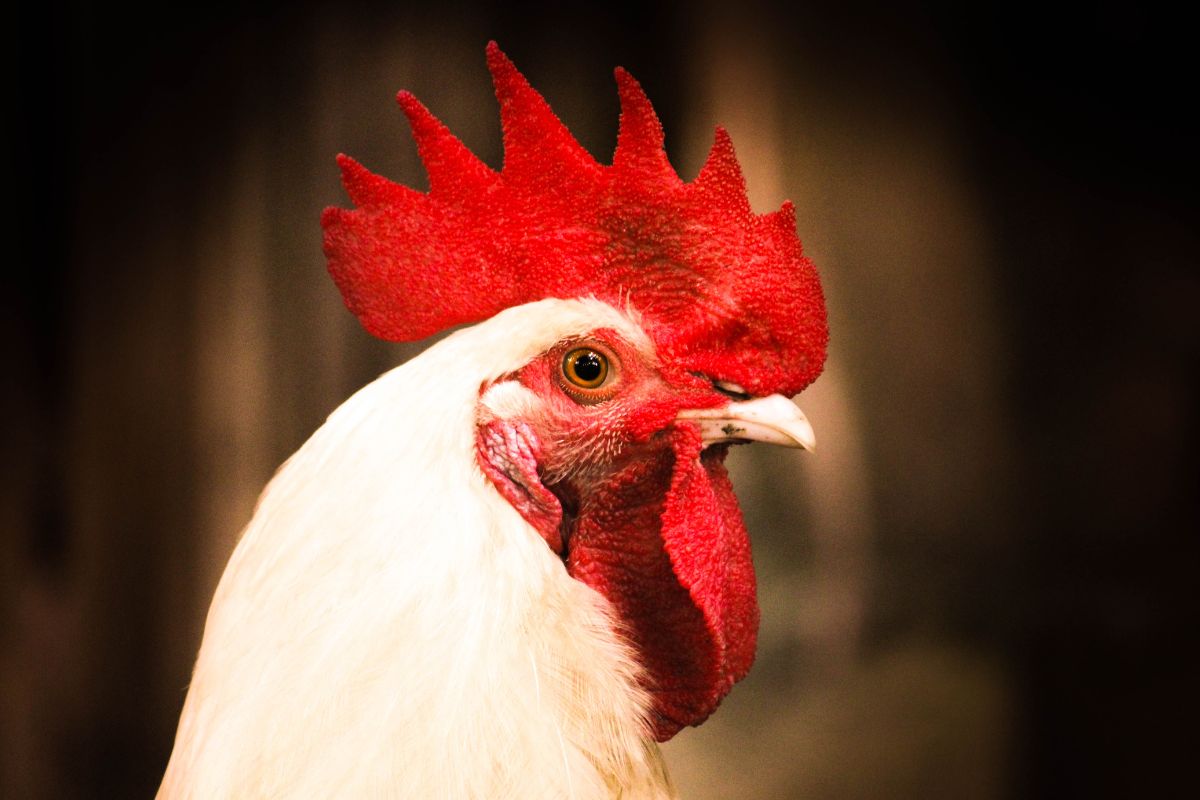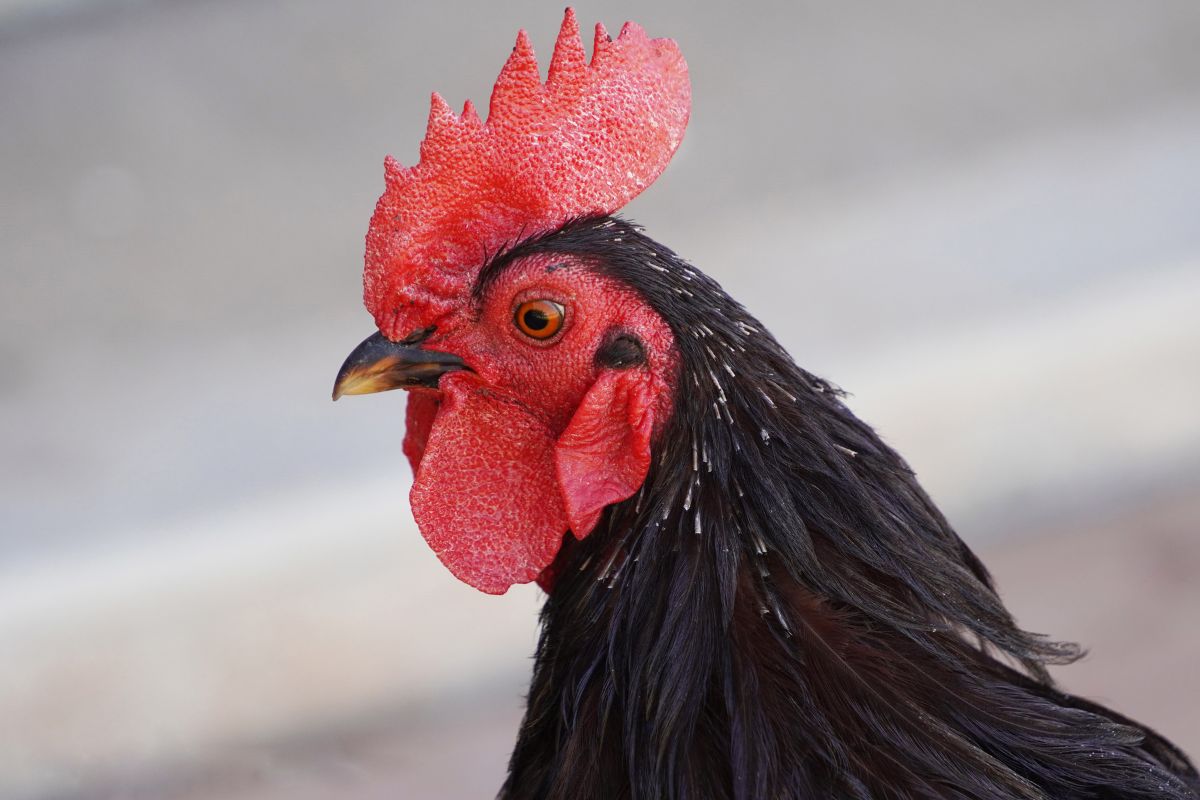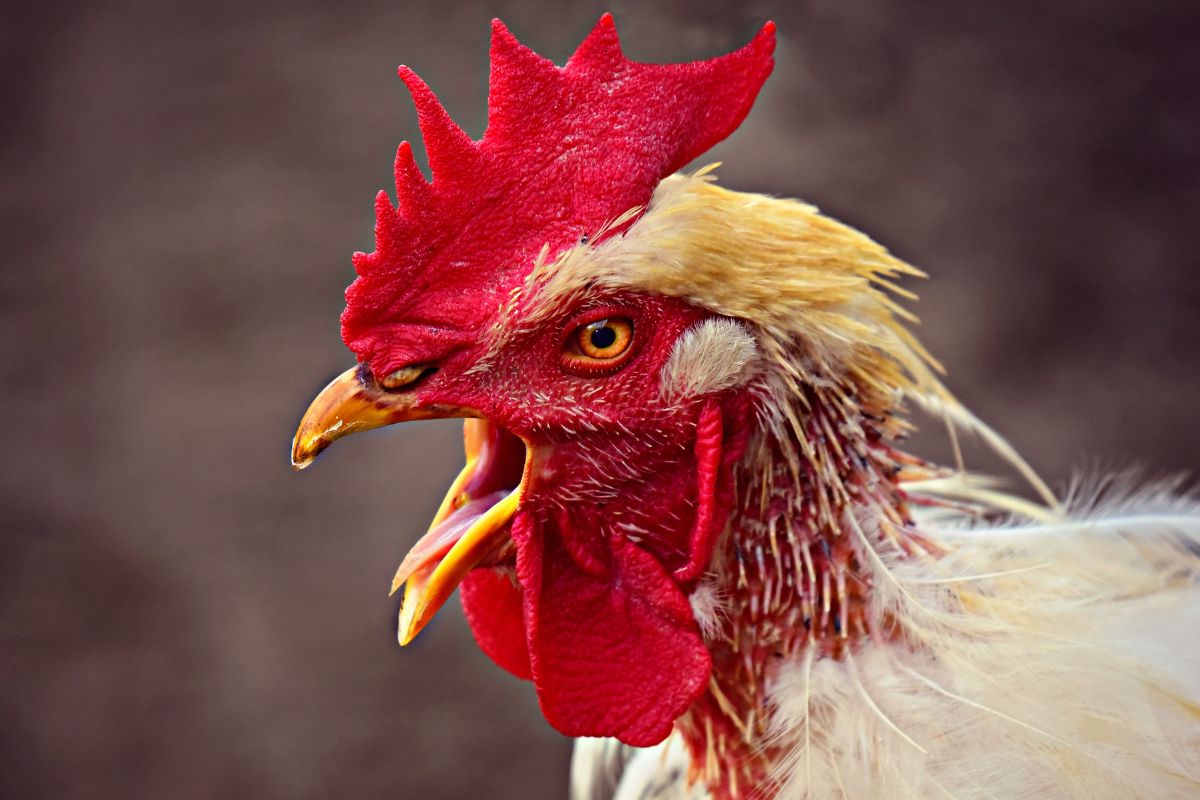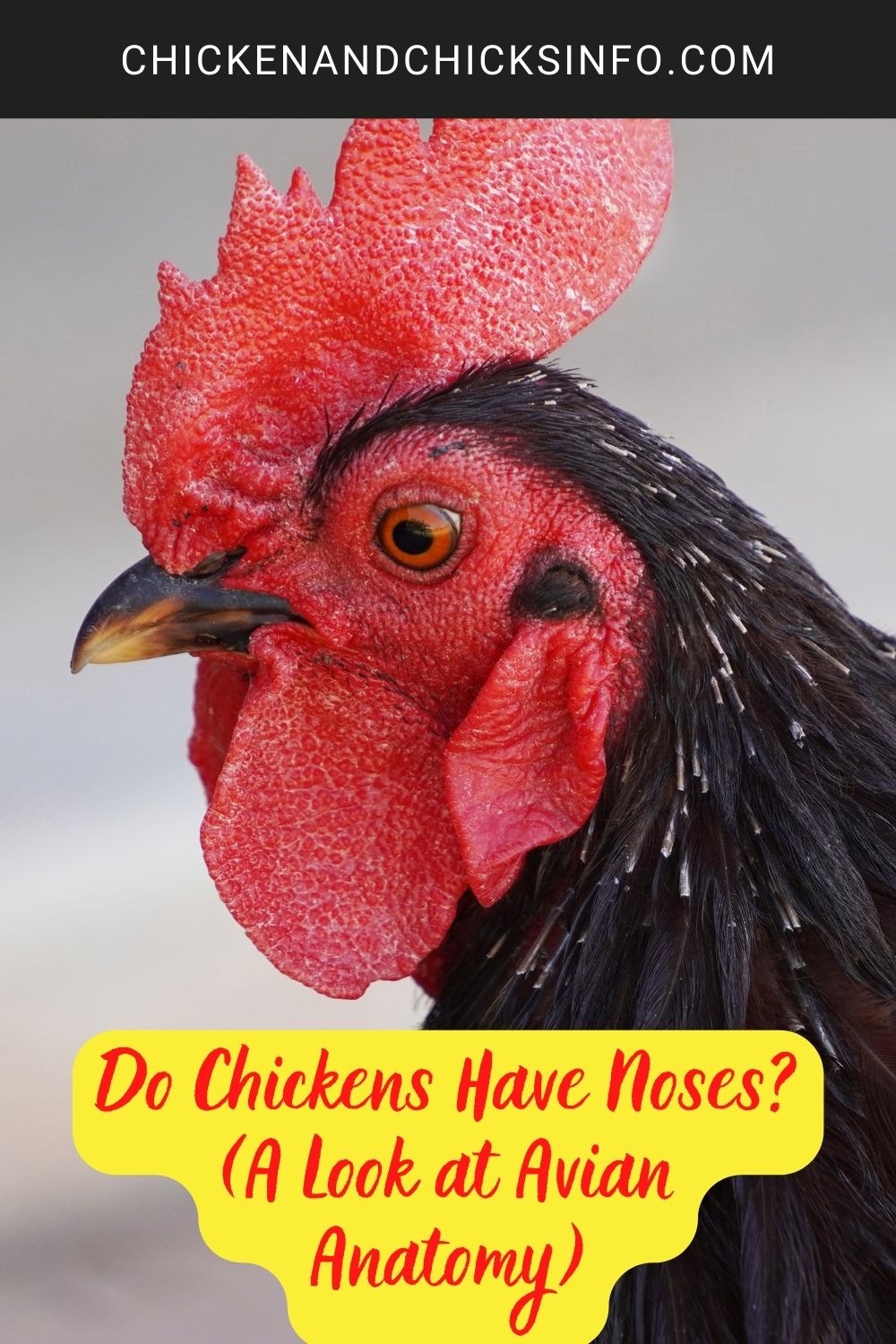
Technically speaking, chickens do not have noses, no. They do have nostrils, however, and are able to smell things (albeit somewhat limited compared to us). You can clearly see their nostrils near the top of their beak if you take a good look.
Jump to:
Do Chickens Have Nostrils?
Chickens do have nostrils, yes. As do most birds. A bird’s nostrils are called ‘nares’, and they are typically located somewhere near the top of their beak.
In the case of chickens, as you’ll see in the header image above, a chicken’s nostrils are located near the top of where their beak starts.
Chickens breathe in through their nostrils and use them to smell things, just as we do. They take in air, which goes into their nasal cavities within their skull and through the rest of their respiratory system.
The avian respiratory system is similar to that of ours. They have lungs as we do, but their respiratory system is a lot more efficient.
Why Do Chickens Not Have Noses?
The answer as to why chickens do not have noses is essentially the same answer when asking about why certain animals and birds have or don’t have certain body parts.
It’s down to evolution.
Chickens simply do not need a nose. As crazy as that sounds, it’s true. In fact, a nose would be more of a problem than it would be a help to their existence.

Talking about birds in general, because obviously, chickens don’t fly much, a bird’s beak and skeletal system are designed to be lightweight and aerodynamic so they can fly efficiently.
One of the main reasons why birds do not have teeth is that teeth are heavy, and if you have teeth you typically have a fairly flat face. Birds need to fly, so they have lightweight beaks instead.
Just try and picture a large nose sitting on top of a bird’s beak. It’s not going to help them when they’re flying, that’s for sure.
In addition to this, chickens simply don’t need to use their nose to sniff things out as some other animals do.
And, I know what some of you will be wondering, how do chickens eat food without having teeth? This is another interesting thing about a chickens’ anatomy, chickens have an internal organ called a gizzard.
The gizzard is kind of like a stomach and a large muscle. With the aid of grit, which chickens swallow, the gizzard contracts and ‘chews’ up their food to be digested.
This is turning into quite the lesson in anatomy and evolution!
Related - Here’s why chickens have hollow bones.
Can a Chicken Smell?
Chickens can smell things, yes. What has been debated a lot over the years is just how well they’re able to smell.
Let’s get the obvious out of the way - all chicken owners know that chickens have a great sense of smell when it comes to food!
If you bring some strong-smelling food out to the yard, it doesn’t take chickens long to get a whiff of it and turn up. Pretty much the same for most animals, food is high up on their list of priorities and who can blame them.
On a more serious note, chickens are great at foraging and finding food sources. Their sense of smell plays an important role in finding and determining what is and isn’t edible.
I’ve read a couple of studies that were performed into trying to better understand how well chickens can smell. However, while they were interesting, I didn’t find one that could conclude with scientific evidence just how powerful their sense of smell is.
It’s generally assumed that a chicken’s sense of smell isn’t their most powerful sense. They rely more so on their hearing and eyesight in the wild to keep themselves safe from predators and forage for food.
Related - Here’s more on how well chickens can smell.
Do Chickens Get Runny Noses?

Chickens can and do get a runny nose, yes!
I know I said earlier that they do not have noses, so when you hear someone talk about a chicken and a runny nose it basically means fluid is running from their nostrils.
It’s not a good sight because it usually means a chicken is dealing with some form of respiratory disease.
If you have a chicken with a runny nose and they’re also sneezing and/or acting like they’re not 100% well, you should seek the advice of an avian vet as soon as you notice it.
Respiratory diseases can spread quickly throughout a flock and cause some problems. CRD, tracheitis, laryngitis, and bronchitis are not that uncommon.
Spotting the signs early and taking action is always going to increase the chance of saving your flock.
In Summary
You now have some added trivia to impress your friends with - chickens do not have noses.
This doesn’t mean they cannot smell things though. Chickens have nostrils through which they breathe, smell, and do all the other things we do with our nostrils!
Resources
Chicken respiratory system vs human - Research Gate





